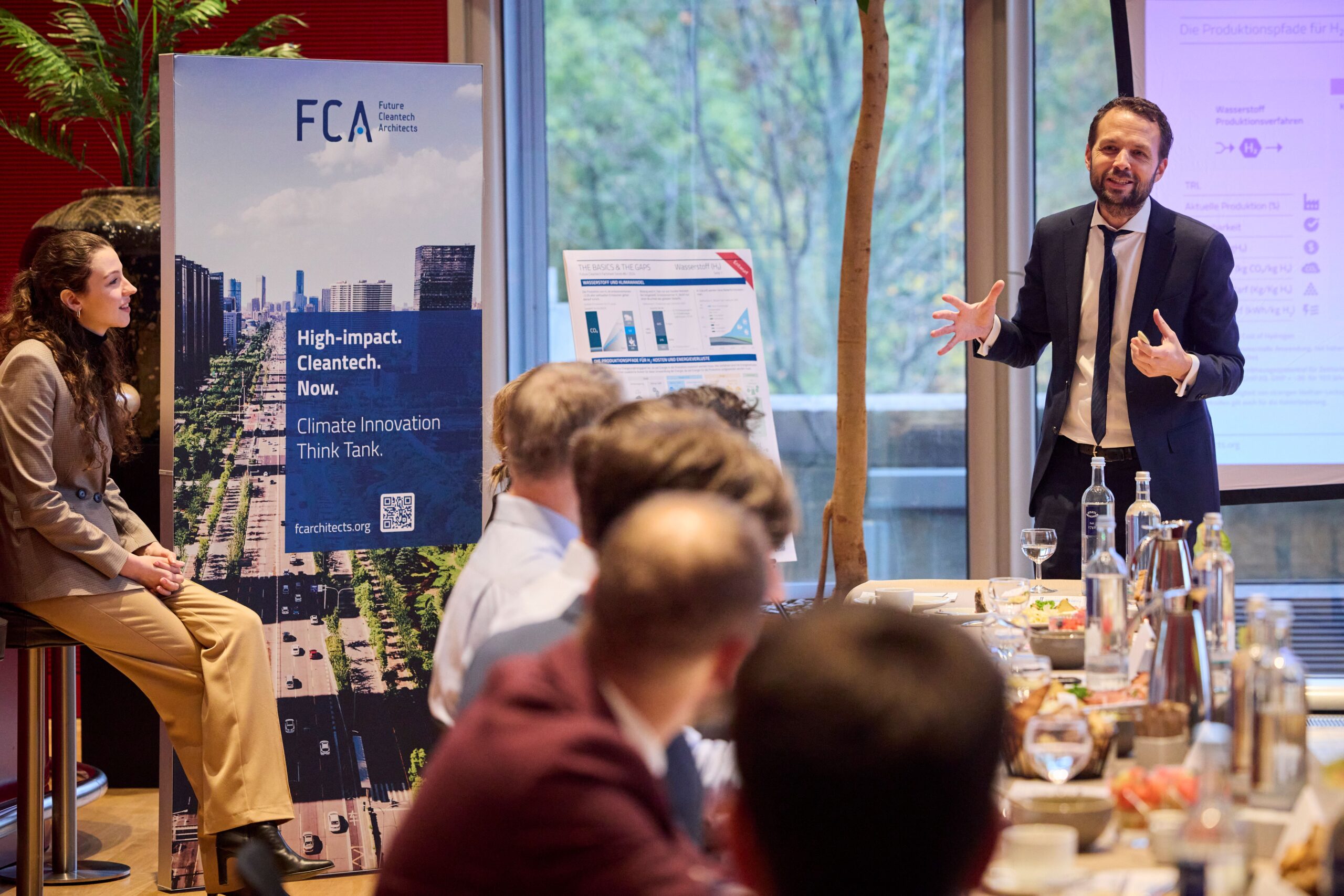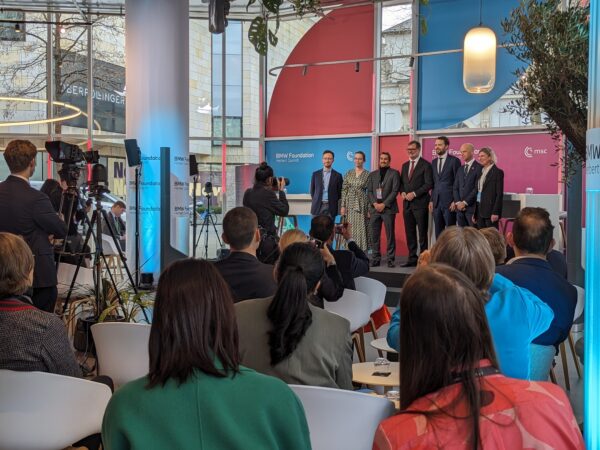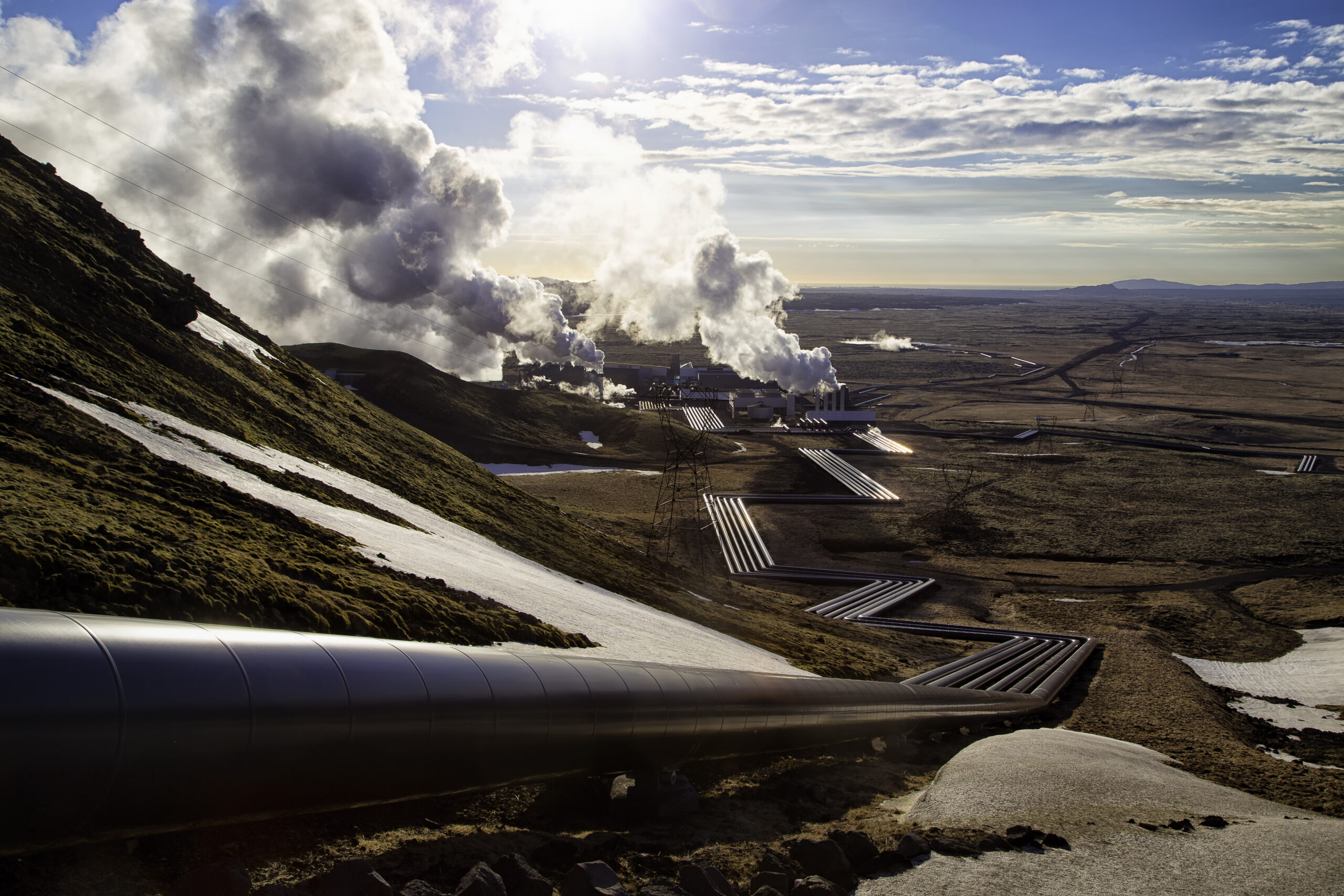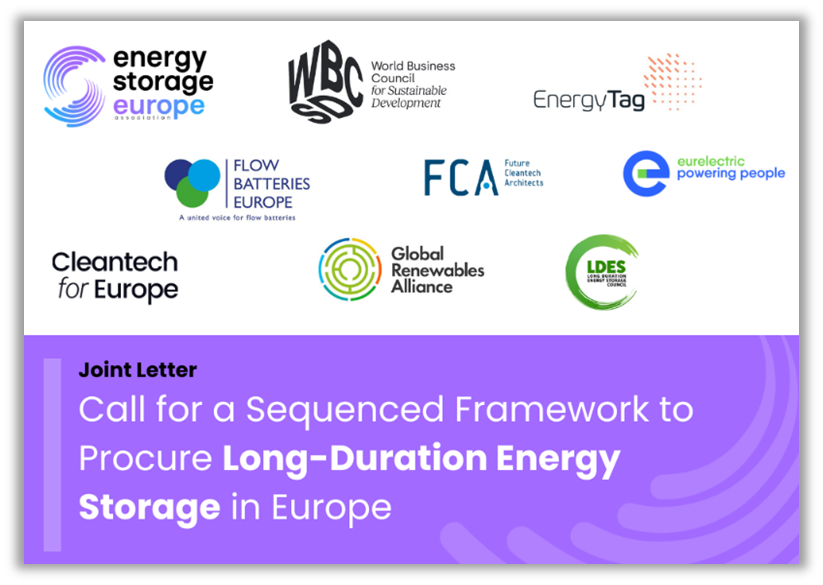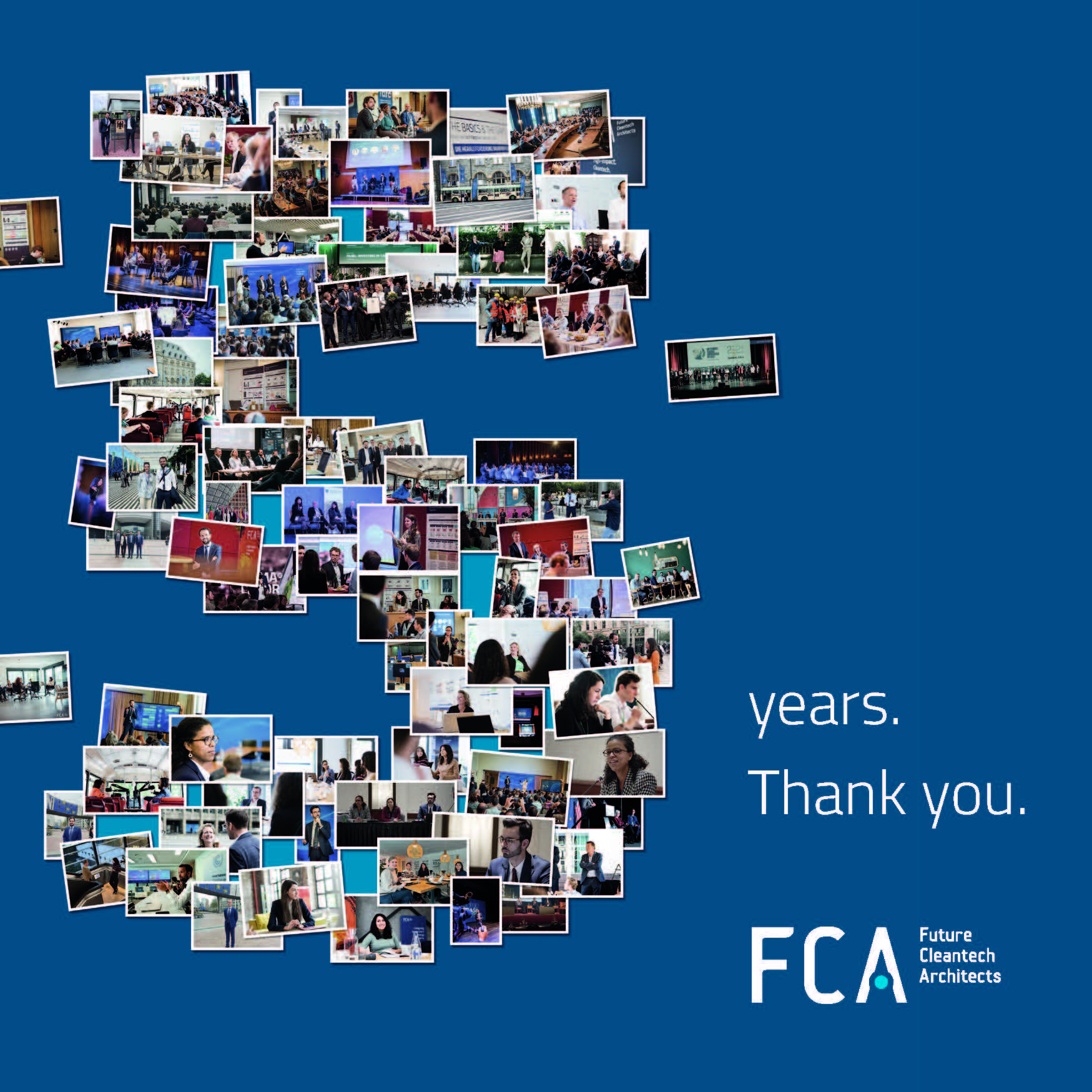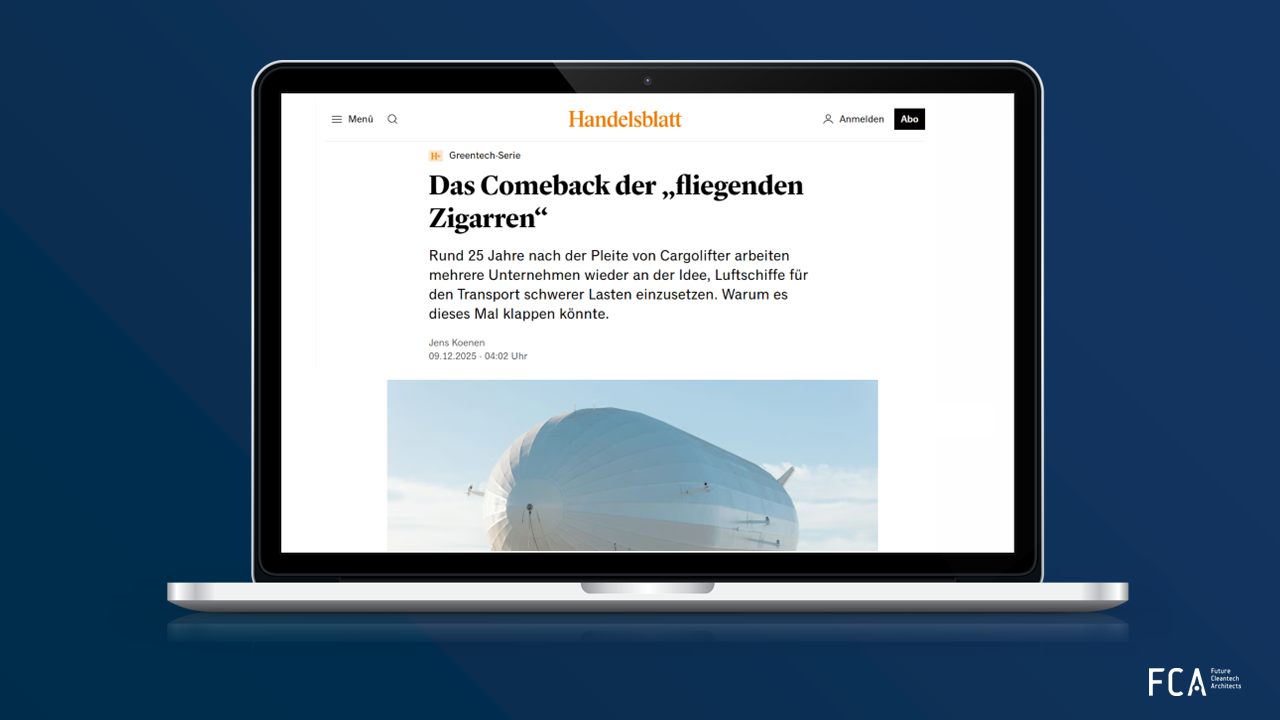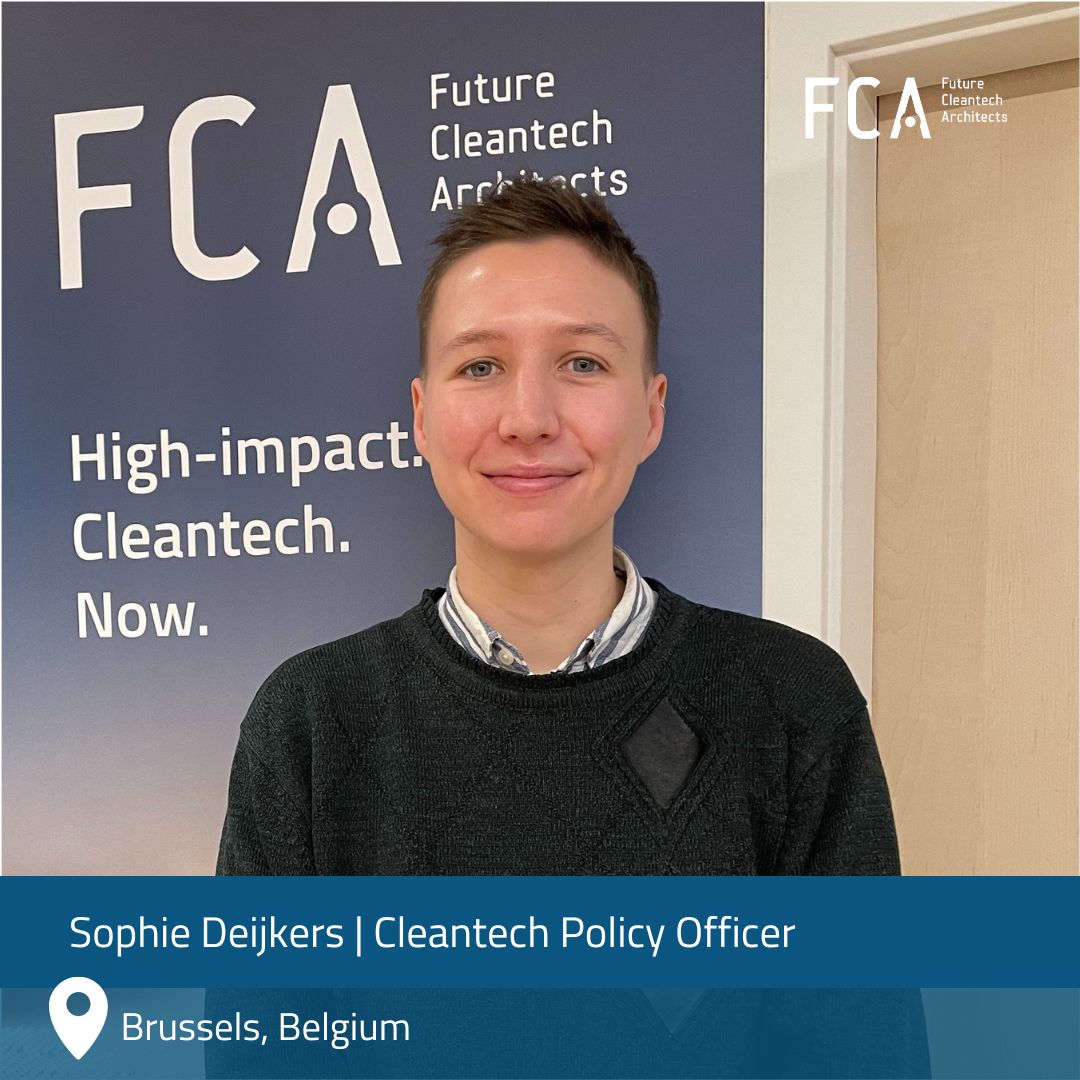Impact Corner
We exist to close the remaining innovation gaps to reach net-zero emissions by 2050. To reach this objective, we accelerate innovation in critical industries – such as cement, aviation or shipping – where sustainable solutions are still in very early stages. We urge policy-makers to intensify and better prioritize their R&D activities. Moreover, we initiate and actively drive high-level research consortia on critical technologies for these neglected technological sectors.
Our work has been noticed by
Member of the European Parliament Thomas Pellerin-Carlin (Progressive Alliance of Socialists and Democrats) highlights the key takeaways from a Coffee & Cleantech briefing during a session of the Committee on Industry, Research and Energy (ITRE).
"We were impressed by the level of FCA’s in-house expertise, depth of engagement with technical research, and sophisticated understanding of the innovation landscape. In addition, despite being a relatively new organization, FCA has already developed an effective track record of shaping EU policy and contributing to international climate discourse through engagement with UN organizations. We think FCA fills a critical gap in the climate policy ecosystem by connecting lessons and learnings from its ‘boots on the ground’ technical work to high-level policymaking."
Read the recommendation
Giving Green
''We are now ready to invest in its ambitious growth, supporting its organizational development as well as key programs in hard-to-decarbonize sectors requiring more innovation, namely zero-carbon fuels, industry, long-duration storage, and carbon removal technologies. We believe that if FCA is successful this could significantly improve the German and European climate policy response.''
Read the article
Founder's Pledge
"The science-based approach of Future Cleantech Architects (FCA) has significantly influenced the strategic investment decision on our new bus fleet. Our fleet consists of about 90 buses and we were considering two options: hydrogen buses (with a fuel cell) or all-electric buses with battery systems. The advice of FCA and their expert team has led us to decide against hydrogen (which will be more urgently needed in other applications) and go for a more efficient and economic all-electric bus fleet instead."
Prof. Dr. Thomas Hoffmann
''Its aim is to promote innovation in Europe’s hard-to-decarbonize sectors by running key programs in, for example, zero-carbon fuels, industry, and carbon removal technologies. (...) You might be wondering if this kind of innovation really meets the “neglectedness” criterion — don’t we already have a lot innovation? In the US, yes. But in Europe, this kind of organization is much rarer.''
Read the article
Vox
''What is special about FCA's approach is that the organization not only takes on the advocacy for these technologies at the political level, but is also itself part of research consortia for the development of these technologies.''
See their page (in German)
Effektiv Spenden

Our 2024 in Numbers
+0
Publications
+0
Bilateral briefings
+0
Team members
+0
Events (co)hosted
+0
New Partnerships
+0
Different nationalities
Our Annual Reports
News
New Format! FCA Standpoint on The Potential of Next-Generation Geothermal for Heating in Europe
Geothermal is a renewable form of energy generation that works by drilling into the earth to extract the heat naturally present underground, keeping the surface footprint low. Depe
🔋 Long-duration energy storage #LDES is no longer optional, it is essential for Europe’s energy security and industrial decarbonization.
What “Made in Europe” Really Means for Cleantech and Industry As Europe rapidly scales wind and solar and accelerates industrial electrification, flexibility is becoming the li
Blogpost | What “Made in Europe” Really Means for Cleantech and Industry
What “Made in Europe” Really Means for Cleantech and Industry Blogpost by Marlène Siméon, based on the input of FCA’s cleantech analysts and policy team members For Europe,
2025 in Review: Our Milestones
Last year marked an important phase of growth for our team. We welcomed new talent across our leadership, cleantech analysts’ unit, and European policy team.Throughout 2025, FCA
FCA Wishes You a Great Holiday Season!
As 2025 comes to a close, we are reflecting on five inspiring years together.Since we started, we have navigated a political climate as changeable as the weather, yet the pace of i
The Comeback of the Airships: New Release in Joint Series with Handelsblatt
After 25 years, airships are once again attracting attention as a potential solution for transporting heavy loads. Several companies are revisiting the concept, supported by advanc
FCA Highlighted by Washington Post as One of the Few European Organizations Recognized for Exceptional Climate Impact
We are proud to have been featured last week in The Washington Post as one of the few European organizations recognized for exceptional climate impact. The article cites charity ev
Open Letter | A Comprehensive EU Action Plan for Geothermal Energy
Next-generation geothermal technologies, including enhanced, advanced, and superhot geothermal systems, can unlock high-temperature heat, firm clean, dispatchable power, and cascad
Our EU Policy Unit is growing!
We are happy to announce that Sophie Deijkers has joined FCA as our new Cleantech Policy Officer, working closely with Marlène Siméon and Patrick Cummins-Tripodi.Sophie holds a B
